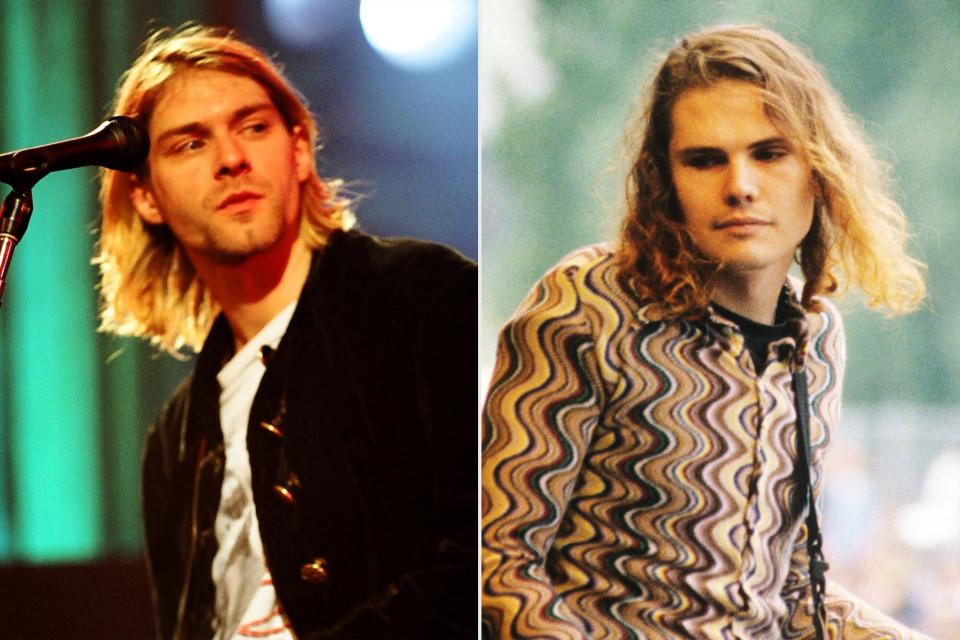Billy Corgan says when Kurt Cobain died he 'cried because I had lost my greatest opponent'
Billy Corgan has always been unapologetically competitive, which is what helped make his band the Smashing Pumpkins one of the biggest bands of the '90s. But Corgan's not satisfied to be just one of the best, he wants all the rings, all the crowns, all the titles. Only, however, by earning them fairly.
In a new interview with Apple Music's Zane Lowe, the Smashing Pumpkins frontman revealed he was particularly upset over Kurt Cobain's death because he had lost his "greatest opponent."

Jeff Kravitz/FilmMagic; Gie Knaeps/Getty Kurt Cobain (left) and Billy Corgan
"I want the Pumpkins standing on the top of the heap of our generation," Corgan told Lowe. "If that means I got to write 800 songs to do it, I'll do it. I ain't shy about that."
The Pumpkins hit it big in 1993 with Siamese Dream, two years after Nirvana's Nevermind irrevocably altered the culture. The Seattle trio's reign was short, however, as Cobain — the singer, guitarist, and principal songwriter — died by suicide the following year.
"When Kurt died, I cried because I lost my greatest opponent," Corgan said. "I want to beat the best. I don't want to win the championship because it's just me and a bunch of jabronis, to use a wrestling term."
In 1995, the Pumpkins released their magnum opus, Mellon Collie and the Infinite Sadness, an ambitious double album that debuted at No. 1 on the Billboard 200, went on to sell 10 million copies, becoming the biggest-selling double album of the decade, and earning seven Grammy nominations, including Album of the Year.
"I will go down always as saying, Kurt was the most talented guy of our generation," Corgan continued. "Kurt had so much talent. It's like frightening. It was like a John Lennon level of talent, where you're like, 'How can you have all this talent?' Or Prince, right? But Kurt's not here, sadly. So I looked around, I was like, 'All right, well, I could beat the rest of them for sure.'"
Jabronis like Pearl Jam, Green Day, Radiohead (whom Corgan said "figured out the world that was coming pretty much before every band on the planet"), Alice in Chains, etc. might disagree — but that was the '90s, baby. Too many icons being iconic.
Related content:


